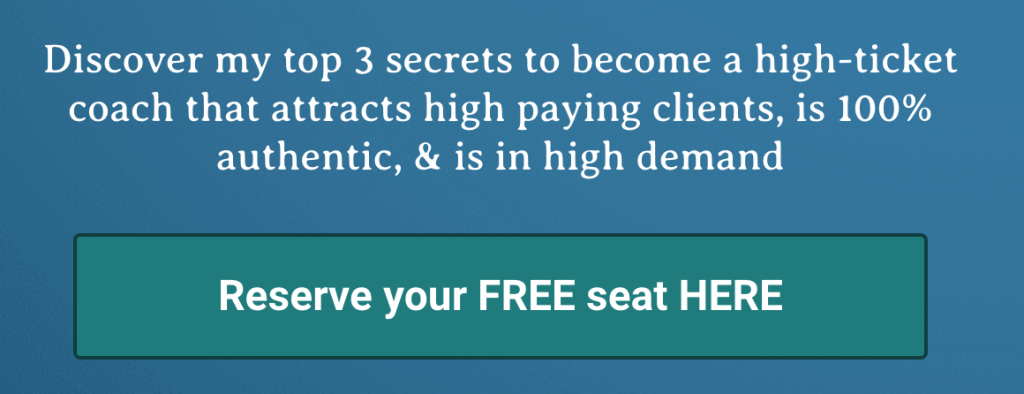
This post is all about coach.
Coach
Hiring a coach can feel scary or intimidating- especially when everyone on the internet is an “expert” or at least a keyboard warrior full of opinions!
After working with my coaching clients in over 20 countries and helping people in over 100 niches, I have seen how a coach can really help transform someone’s life.
You see professional athletes work with coaches, top speakers, top CEOs, and more.
Yet, there are people who still wonder if it is a good fit for them.
I want you to have the best information before you decide if hiring a coach is right for you, that is why this blog post will tell you all about the benefits, what questions to ask, the difference between a coach and a consultant, and more!
Hiring a coach can have numerous benefits for both personal and professional growth.
- Clarity and direction: A coach can help you clarify your goals, identify obstacles and create a plan to overcome them.
- Improved self-awareness: Coaches can help you understand your strengths, weaknesses and beliefs, and how they impact your behavior and decision-making.
- Accountability: A coach provides accountability and support in following through with your goals and action plans.
- Personal growth: Coaching can help you develop new skills, improve relationships, and enhance personal well-being.
- Professional development: A coach can help you improve job performance, develop leadership skills, and advance your career.
- Increased confidence: Working with a coach can boost self-confidence and self-esteem, allowing you to tackle challenges with greater ease.
- New perspectives: A coach can provide new perspectives and insights, helping you approach problems and opportunities from a different angle.
- Efficient goal attainment: Coaches can help you set realistic goals and create an action plan, allowing you to achieve your objectives more efficiently.
It’s important to note that coaching is a collaborative process between the coach and the client.
It requires effort and commitment from both parties to see meaningful results. When choosing a coach, consider their background, experience and areas of expertise to ensure they are the right fit for your personal or professional growth needs.
The benefits of hiring a business coach to help you achieve your business goals vs hiring a life coach
The benefits of hiring a business coach and a life coach are similar in many ways, but there are also some key differences.
Benefits of hiring a business coach:
- Improved business strategy: A business coach can help you develop a clear, effective strategy for your business, from marketing and sales to finances and operations.
- Increased productivity: Coaching can help you streamline your processes, prioritize tasks and manage your time more efficiently, leading to increased productivity.
- Enhanced leadership skills: A business coach can help you develop strong leadership skills, such as communication, delegation, and motivation, to lead your team to success.
- Better financial management: A coach can provide advice and guidance on financial management, from budgeting and cash flow to investment planning.
Benefits of hiring a life coach:
- Personal growth: A life coach can help you identify areas in your life that need improvement and create a plan to achieve your personal goals.
- Improved relationships: Coaching can help you improve your relationships with family, friends and romantic partners by providing tools for effective communication and conflict resolution.
- Increased self-awareness: A life coach can help you understand your values, beliefs, and motivations, leading to a better understanding of yourself and others.
- Enhanced well-being: Coaching can help you improve your mental and emotional health, reduce stress, and increase overall well-being.
In conclusion, the type of coach you choose to hire will depend on your specific goals and needs.
If you are looking to grow your business, a business coach is likely to be the better option, while if you are looking for personal growth, a life coach may be more suitable.
How to get the most out of hiring a coach
To get the most out of hiring a coach, it’s important to approach the coaching relationship with an open mind and a willingness to learn and grow. Here are some steps you can take to maximize the benefits of coaching:
- Clearly define your goals: Before you start working with a coach, take some time to clearly define what you want to achieve through coaching. This will help you and your coach focus on the areas where you need the most help.
- Be proactive and prepared: Be proactive in your coaching sessions by preparing questions and discussing specific challenges you are facing. This will help you get the most out of each session and make the best use of your coach’s expertise.
- Be honest and transparent: To get the most out of coaching, it’s important to be honest and transparent with your coach. This includes sharing your thoughts, feelings, and experiences, as well as any challenges or obstacles you may be facing.
- Take action on your coach’s suggestions: Your coach will provide you with strategies and action plans to help you reach your goals. It’s up to you to put these suggestions into action and make meaningful change.
- Stay committed and consistent: Coaching is a process that takes time and commitment. Regular coaching sessions and consistent follow-through on action plans are essential to see meaningful results.
- Be open to feedback: Your coach will provide you with constructive feedback and suggestions for improvement. Be open to this feedback and use it as an opportunity for growth.
- Evaluate progress: Regularly evaluate your progress and adjust your goals and action plans as needed. This will help you stay on track and continue to make progress towards your objectives.
By following these steps, you can get the most out of hiring a coach and maximize your personal and professional growth.
A coach vs a consultant
A coach and a consultant both offer guidance and support to individuals or organizations looking to improve, but there are some key differences between the two.
A consultant provides expert advice and recommendations based on their experience and knowledge. They typically focus on solving specific problems, such as improving a particular business process, and provide a roadmap for implementation.
Click here to learn more about coaching business services.
A coach, on the other hand, works with the client to identify their goals and develop a plan to achieve them. Coaches use a variety of techniques, such as active listening, questioning, and reflection, to help clients gain new perspectives and insights. Unlike a consultant, a coach focuses on the development of the individual or team, rather than solely on the resolution of a specific problem.
There are several reasons why a coach may be a better option than a consultant:
- Personalized approach: Coaches work with clients to identify their unique needs and goals, providing a personalized approach to development.
- Emphasis on self-discovery: Coaches help clients uncover their strengths, weaknesses, and motivations, leading to greater self-awareness and personal growth.
- Focus on long-term change: Coaching is a process that focuses on long-term change and personal development, rather than just addressing immediate problems.
- Increased accountability: A coach provides accountability and support to help clients follow through with their action plans, leading to greater success and growth.
- Improved decision-making: Coaching can help clients develop better decision-making skills, allowing them to tackle challenges and opportunities with greater ease.
While both coaches and consultants can offer valuable support and guidance, a coach may be a better option for individuals or organizations looking to focus on personal and professional development, rather than just solving specific problems.
Top 30 questions to ask when hiring a life or a business coach
Here are 30 questions to consider when hiring a life or business coach:
- What is your coaching philosophy and approach?
- What are your areas of expertise and what specific challenges have you helped clients overcome in the past?
- How do you measure success and track progress with clients?
- What kind of support do you provide outside of coaching sessions?
- How do you handle conflicts or disagreements with clients?
- What is your availability and how flexible are you with scheduling coaching sessions?
- How do you ensure confidentiality and privacy for your clients?
- What kind of follow-up or additional resources do you provide after coaching sessions?
- How do you customize your coaching approach to meet the unique needs of your clients?
- Can you provide references or testimonials from past clients?
- What is your coaching style and how do you adapt it to fit the needs of each client?
- What is your process for setting and achieving goals with clients?
- How do you stay current with developments in your field and continue to improve your coaching skills?
- What kind of tools and resources do you use in coaching, such as assessments or exercises?
- What is your approach to helping clients overcome obstacles or challenges?
- How do you handle sensitive or difficult topics with clients?
- How do you help clients identify and overcome limiting beliefs or self-sabotaging behaviors?
- What is your process for helping clients develop effective strategies and action plans?
- How do you help clients build and maintain momentum towards their goals?
- What is your approach to coaching remote or virtual clients?
- How do you ensure that coaching sessions are productive and engaging for clients?
- How do you involve clients’ families, friends, or colleagues in the coaching process, if relevant?
- What is your approach to coaching for personal or professional development?
- How do you approach coaching for a specific issue or problem, such as stress management or career development?
- How do you work with clients to develop action plans that are realistic and achievable?
- What is your approach to helping clients set and reach their financial goals?
- How do you help clients develop strong relationships with others, such as family, friends, or coworkers?
- How do you help clients develop resilience and emotional intelligence?
- What is your approach to coaching for wellness, such as physical health or spiritual growth?
- How do you help clients maintain and continue to grow after coaching sessions have ended?
By asking these questions, you can get a better understanding of a coach’s approach, experience, and qualifications, and determine whether they are the right fit for your needs.
This post was all about coach.





